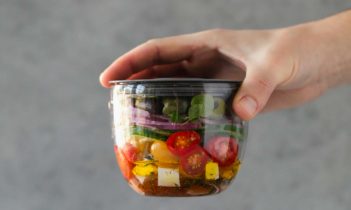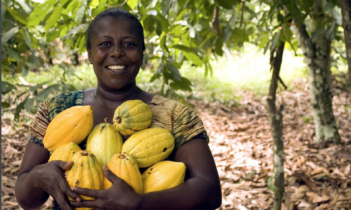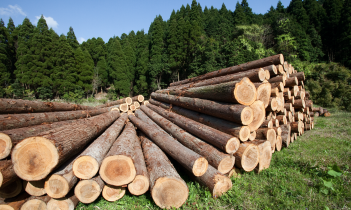Scientific Publications
Our scientists and experts contribute regularly to the growing science of sustainability around the world. Science is the very core of our approach to sustainability, and scientific credibility is the foundation of the trust that exists with all of our internal and external stakeholders.
Guidance from our Scientific Excellence Committee ensures we base all our works on reputable, transparent information and that we apply robust quality control processes.
This active engagement within the scientific community helps us to thrive in that sweet spot where the latest and most robust scientific knowledge finds its application in business.


Lifestyle changes for greenhouse gas emission reduction in Switzerland
Quantis' Sophie Chalumeau, tackled the question: “What are the best actions to take as individuals to reduce our carbon footprint?”

Towards win-win policies for healthy and sustainable diets in Switzerl...
The first Swiss national dietary survey was used to screen disease burdens and GHG emissions of Swiss diets, with a...

LC-IMPACT: A regionalized life cycle damage assessment method
The study presents the LC-IMPACT method that provides characterization factors at the damage level for 11 impact categories related to...

Comparing the Impacts of Meatless and Meat-Containing Meals in the Uni...
Meatless meals had more than a 40% reduction in environmental impacts than meat-containing meals.

Predicting chemical migration from packaging to food
This article presents a new regression-based model to predict chemical contaminants transferred from packaging to food

Harmonizing Human Toxicity Characterization in LCIA
The Life Cycle Initiative established the Human Toxicity Task Force to develop guidance on assessing human exposure and toxicity impacts.

Including human exposure to chemicals in food packaging
Here we explore the research needs for extending life cycle impact assessment (LCIA) to include exposure to chemicals in food...

True Cost of Food: Unpacking the value of the food system
This publication identifies the methodological & data gaps that need to be filled to make TCA more robust & consistent.

Shout it Out: Communicating Products’ Social Impacts — a White...
This white paper seeks to identify good practices of product-level social impact communication that can provide inspiration.

Toward harmonizing ecotoxicity characterization in life cycle impact a...
This paper brings global guidance and harmonization to how ecotoxicity is modeled in LCIA

Optimization of a micro-CHP system
Discover the environmental and economic performance of an innovative micro-CHP system based on membrane reactor and PEM fuel cell.

Response to: Dietary strategies to reduce environmental impact must be...
In this letter to the editor, Alexi Ernstoff highlights a significant misunderstanding in the life cycle assessments (LCAs) of diets...

LCA of Chemicals and Chemical Products
This chapter highlights best practices and challenges in Life Cycle Assessment of chemicals

Biodiversity effects of forestry practices
This publication proposes an approach that requires limited data collection to capture the potential biodiversity effects of forestry practices.

LCIA Planetary Boundaries weighting factors: Applied to cosmetics
We developed a new set of Planetary Boundaries-based weighting factors for Life Cycle Assessment (LCA) and tested it on L’Oréal...

The importance of considering product loss rates in LCA
This study examines the implications of product loss rates in terms of the environmental performance of bottled wine.
